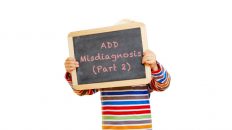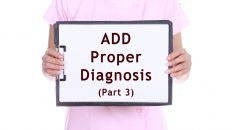By Jerry Morris, PsyD, MsPharm, MBA
MB (Marc Braman, MD, MPH):
The science is showing there’s a lot of connection to specific diseases, even the really common diseases. What conditions are affected significantly by stress?
JM (Jerry Morris, PsyD, MsPharm, MBA):
Yeah, that’s an important concept as we move in to try to move toward health interventions and the medical complex, or just allopathic or symptom-oriented interventions. Things like obesity, things like hypertension, things like diabetes, especially juvenile onset that has all sorts of emotional and personality and adaptive and relational components that build over the years, things like even cancer, where Scherer and the doctors at the University of Missouri even found that with a simple bucket of ice they could identify people who are high-stress reactors and have long-term anger, based on vaso-constriction to ice bucket pain, and that that predicted higher incidence of coronary heart disease and other stress related disorders that are happening.
JM:
So we now have the science to know that there’s a huge self-regulation component to many of the major illnesses that humans encounter and something you mentioned earlier is a vital concept. All of the necessary medicines for these disorders are contained within our body and if we know how to regulate that stress system to be in the optimal stress zone, we are then not only adapting and regulating our environment and choices, which is a loop that affects our physiology but we’re also regulating our physiology in ways that maintain us in the optimal functioning and reparative zones.
MB:
So we can use this built-in pharmacy very much to our advantage pretty much all the time and we also want to avoid basically sending out poisonous messages, if you will, that will cause some of these conditions, or at least contribute to them but the science you mentioned previously on how long we live and the effects of stress is very large. So, in conclusion, can you give us some sense or picture as to how big the effect of stress is compared to other things. How big the clinical benefit would be compared to other things we might do such as medications or procedures or other treatments?
JM:
Yes, that’s a very, very important issue. Actually, the medical establishment is correct in the position that short-term interventions are humanitarian and necessary with some people why we build longer term interventions, but in the long term we must help the person become aware of these wonderful signals, both positive and negative; to get people to quit blocking the negative signals so that they have them as motivators and the magnitude of effect has shown in depression, in obesity, in hypertension, in coronary heart disease, in a lot of these chronic illnesses to be major. So, the magnitude effect is actually likely much larger and maybe even almost double what we see in the research and is just large in the research.
MB:
So the magnitude is huge and I think what you’re saying in terms of short-term interventions can be helpful meaning medications at least initially to get through a crisis or some initial problems but they’re really not a good long-term solution and the best long-term solution is to switch that built-in pharmacy from negative and hurting us to positive, building us up, keeping us healthy, and living long.
JM:
That’s exactly right.
MB:
Excellent. So this gives us at least some initial understanding of stress. Dr. Morris, thank you very much.
JM:
Thank you, Marc.
Can the cold pressor test predict future cardiovascular events in patients without demonstrated ischemic heart disease by SPECT? Pautasso E, Koretzky M, Marcon L, Borrego C, Panini J, Lerman J. Int J Cardiol. 2014 Aug 1;175(2):226-32. doi: 10.1016/j.ijcard.2014.04.202.
Environmental Adversity and Increasing Genetic Risk for Externalizing Disorders. Hicks BM, South SC, DiRago AC, et al. (2009). ARCH GEN PSYCHIATRY. June, 66(6): 640-650. doi:10.1001/archgenpsychiatry.2008.554.
Prenatal Stress Alters Dendritic Morphology and Synaptic Connectivity in the Prefrontal Cortex and Hippocampus of Developing Offspring. Mychasiuk R, Gibb R, Kolb B. (2012) SYNAPSE. 66:308-314. doi:10.1002/syn.21512.
How culture shaped the human genome: bringing genetics and the human sciences together. Laland KN, Odling-Smee J, Myles S. (2010). Genetics. Feb, (11): 137-139. doi: 10.1038/nrg2734.
Stress and the Individual: Mechanisms Leading to Disease. McEwen, BS, Stellar E. (1993). Ach Intern Med. 153: 2093-2101.





